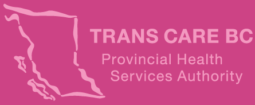Update: February 2019
Four important cases were decided that clarify the rights of transgender people in British Columbia.
Dawson v Vancouver Police Board (No. 2) 2015 BCHRT 54
In 2012 a trans woman was misgendered and deadnamed multiple times during her arrest. She was also deprived of critical medical care related to her gender affirming surgery while in jail (she needed to dilate, but the jail nurses didn’t understand how to help her). She filed a human rights complaint and the BC Human Rights Tribunal found that the police violated the woman’s human rights and awarded her $12,000 in damages.
This case means deadnaming (not using your social or chosen name, even if you have not legally changed it) and misgendering (using the wrong pronouns for you) are human rights violations.
Oger v Whatcott (No. 7), 2019 BCHRT 58
A trans woman ran for office in Vancouver during a provincial election. A detractor, William Whatcott, posted pamphlets misgendering the candidate, using her deadname, and suggesting trans people are dishonest or deluded. She filed human rights complaint. The BC Human Rights Tribunal found in favour of the candidate. She was awarded $35,000 compensation for the injury to her dignity, and a $20,000 award for special damages because Whatcott and his lawyer misgendered and deadnamed her repeatedly throughout the hearing process and ignored an order from the tribunal not to do so.
This decision summarises the law about trans people and human rights. It also describes common types of behavior that are transphobic. This can include focusing on the sex a trans person was assigned at birth instead of their gender; and suggesting that trans people are criminals, or mentally ill.
AB v CD and EF. 2019 BCSC 254, 2019 BCCA 297
A 14-year-old trans boy wanted to start Lupron (a drug that would delay the onset of puberty), and to start taking testosterone. The boy’s father did not agree, and sought a court order preventing his son from accessing gender affirming care. The BC Supreme Court clarified that under the Infants Act, if a young person a) understands the risks and benefits of a proposed treatment (informed consent), and b) the doctor decides the treatment is in the best interest of the child, then consent from parents is not required. [This is how young people can access contraceptives without parental consent].
The father’s misgendered and deadnamed the boy, sometimes in the media, and tried to convince him not to transition. The BC Supreme Court found that this behavior was family violence, and that it negatively affected the boy’s privacy; and ordered the father to stop. The court waived the requirement for the father’s consent for the boy to legally change his name and gender. The boy was allowed to transition medically.
The father appealed the Supreme Court decision to the BC Court of Appeal. That court upheld the decision of the court below (except for the part that misgendering and trying to dissuade the boy from a medical transition counted as family violence). The father was warned again not to talk about the case because doing so could identify the boy, who had a right to privacy. The father did an online interview. The court warned the father and two people who run a website not to give or publish stories about the boy or the case, of they would be in contempt of court.
This case means young people don’t need the consent of their parents if they pass the test in the Infants Act; and that parents under certain circumstances can be prohibited from revealing personal and medical information about their children in public.
Yaniv v Various Waxing Salons (No. 2), 2019 BCHRT 222
A trans woman tried to access waxing services for her arms, legs, and bikini area with waxers who advertised services delivered in their homes via Facebook Marketplace.
The woman told each of the waxers that she was trans, and was she was eventually denied service by all the waxers.
The tribunal found that there is a difference between waxing arms and legs, and waxing genitals. It found that waxing a vulva is different from waxing a scrotum, and that the latter requires special training which the waxers did not have. The tribunal said the waxers advertising on Facebook were not offering to wax scrotums, and so the service was not one ordinarily available to the public, and so the provisions of the BC Human Rights Code did not apply. It dismissed the claims related to bikini waxing.
The tribunal then considered the claims about arm and leg waxing. The tribunal found that Ms. Yaniv brought the complaints for an improper purpose. It said her reason for filing was a desire to punish the waxers, who were all racialized women with a primary language other than English. Racist remarks from Yaniv’s social media accounts were entered as evidence and discussed in the decision. This is not a legitimate use of the human rights regime. As a result, the tribunal dismissed the arm and leg waxing claims (one of which it would have decided in her favour) because her motive was bad faith.
Some of the waxers were represented for free by the Justice Centre for Constitutional Freedoms. Jessica Yaniv did not have a lawyer.
This case means trans women with scrotums and/or a penis (and presumably non-binary and trans masculine people with anatomy other than a vulva) do not have a right to be waxed anywhere that bikini waxing is done, only those places that offer scrotum and penis waxing. It also means that the Human Rights tribunal can consider a complainants conduct and remarks on social media in deciding complaints.



